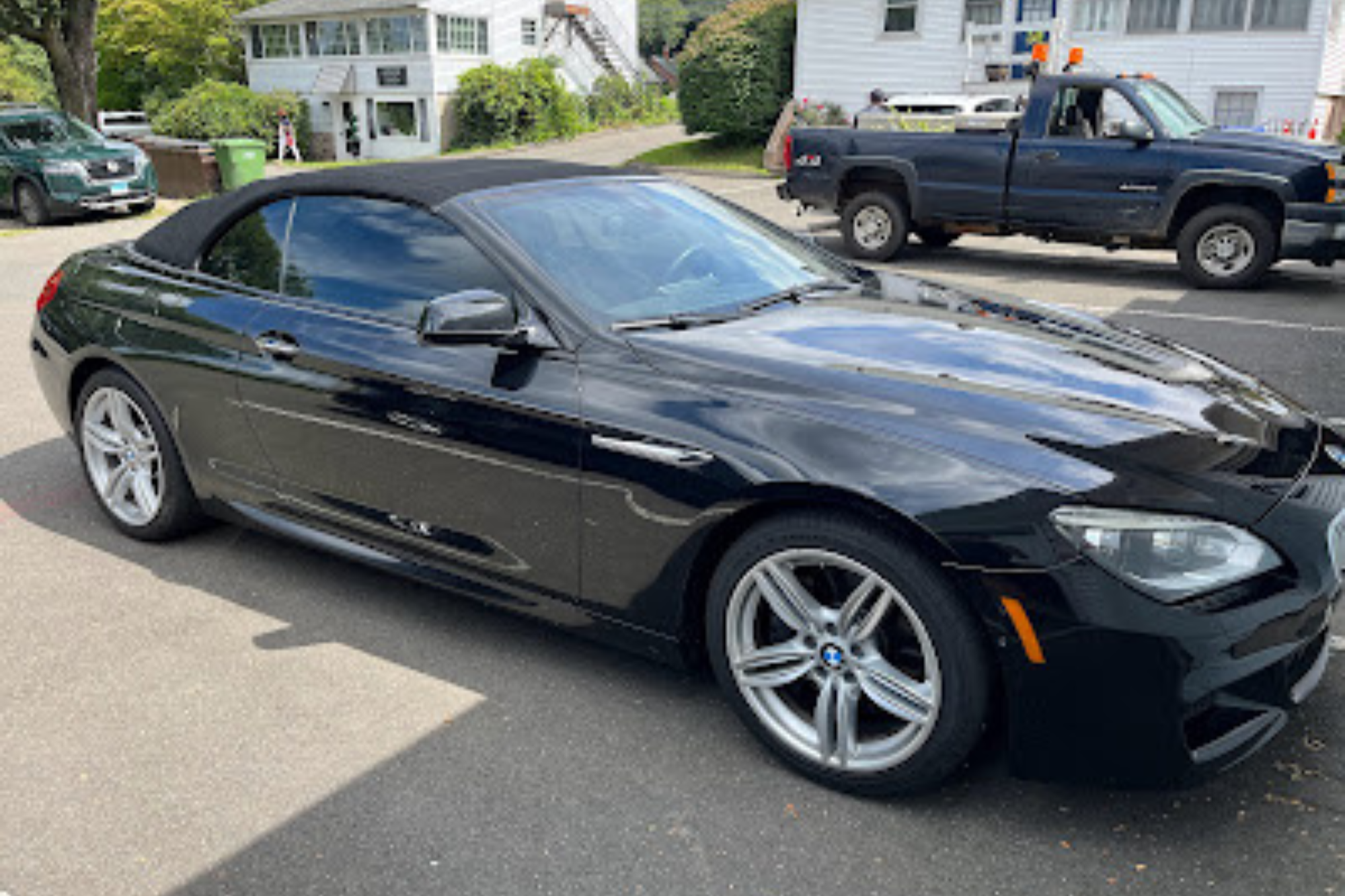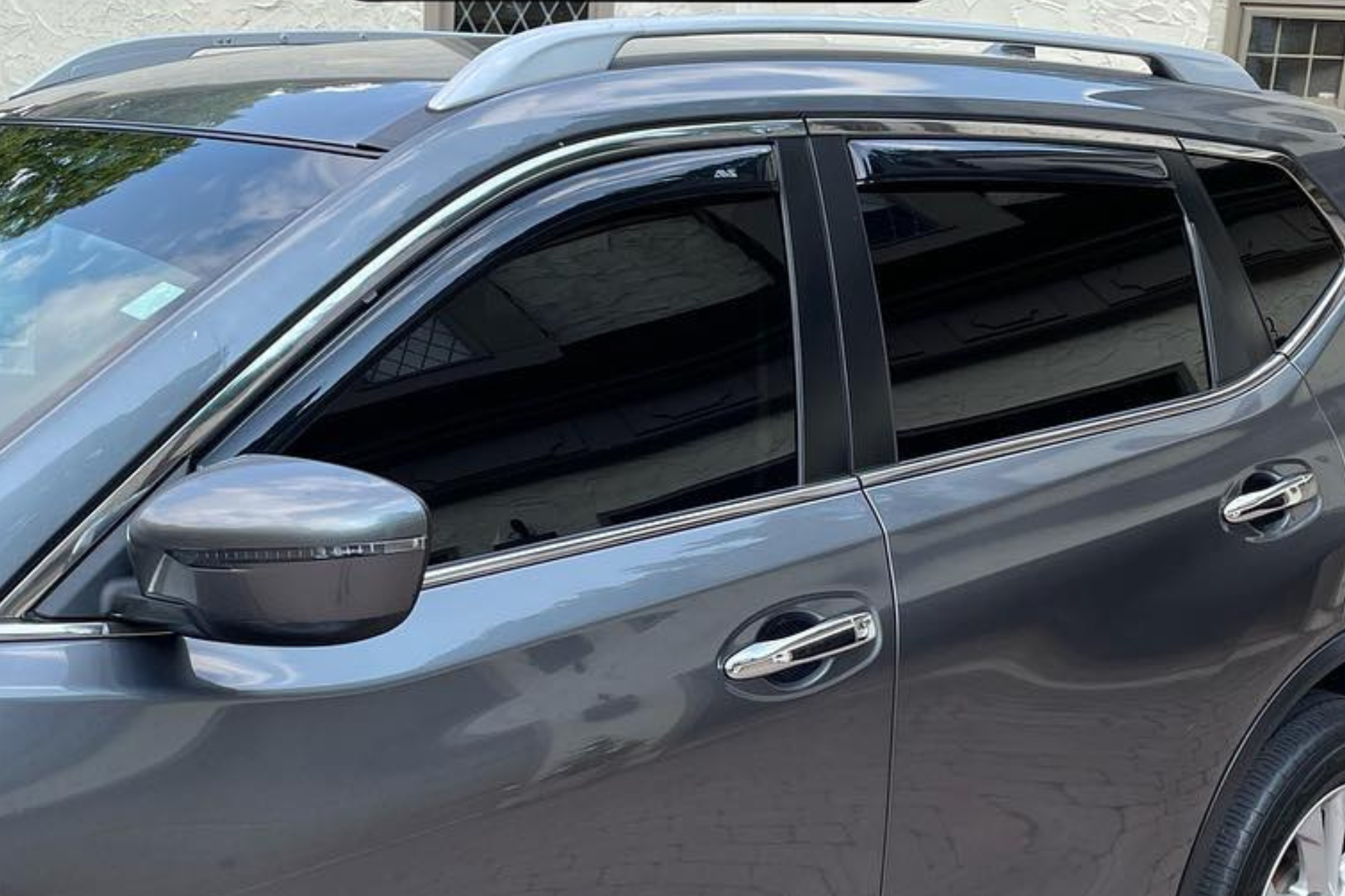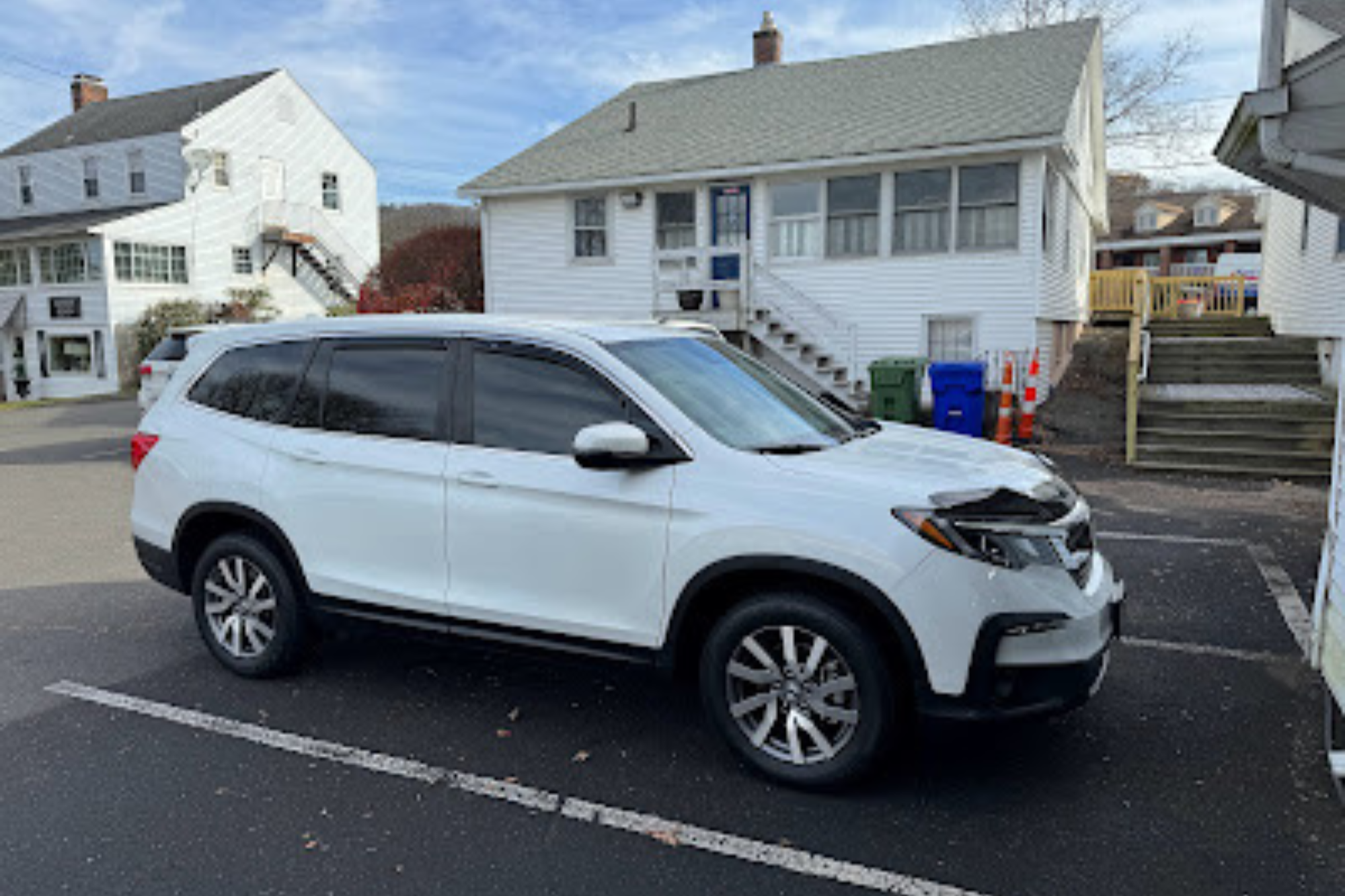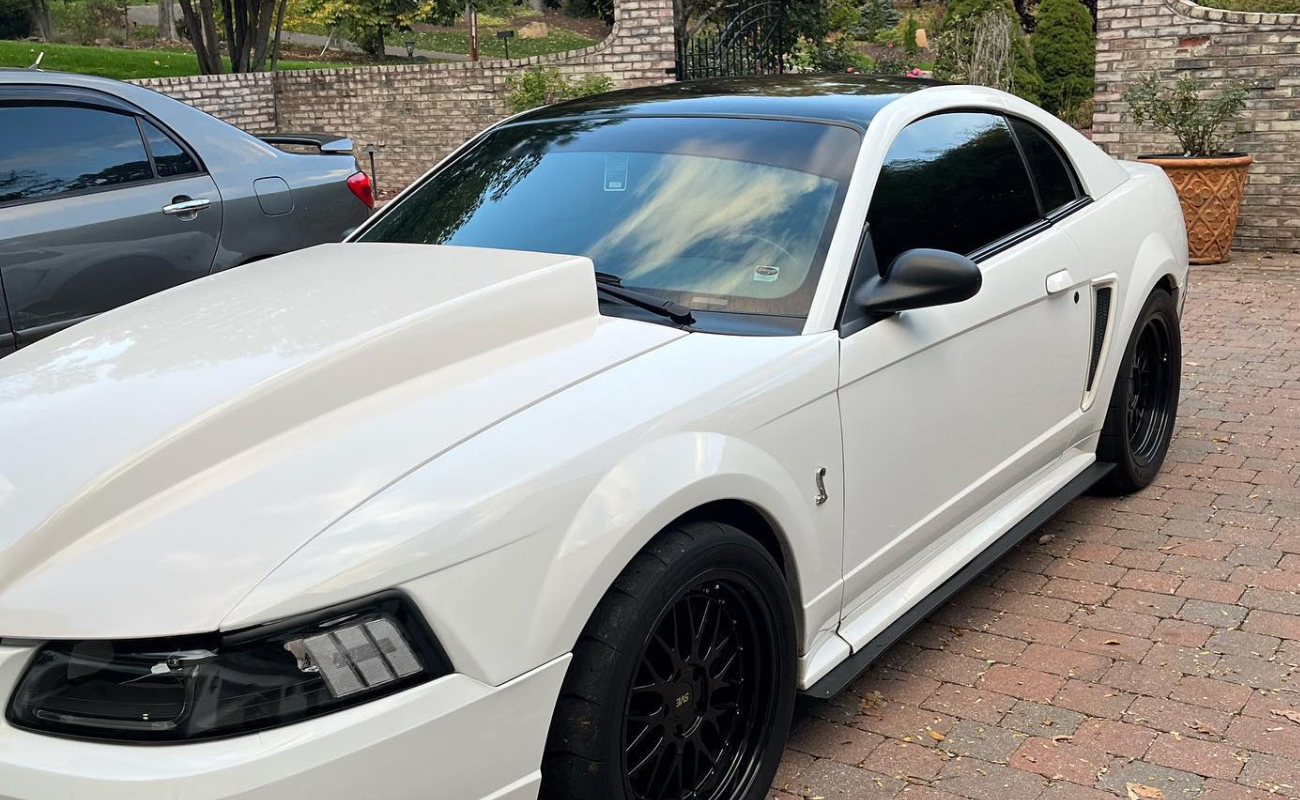
When it comes to selecting the best window tint for your vehicle or home, it’s like choosing the perfect pair of sunglasses for a bright, sunny day. Each type of window tint offers unique benefits that cater to different needs. As you navigate through the world of window tint options, understanding the differences between dyed carbon, ceramic, and metallic tints can help you make an informed decision. So, let’s shed some light on the various features and functionalities of window tint to ensure you find the ideal match for your specific requirements.
Key Takeaways
- Consider your priorities: privacy, UV protection, heat reduction, durability, or style.
- Dyed tint for privacy and UV protection, carbon tint for heat rejection and durability, and ceramic tint for exceptional heat rejection.
- Metallic tint reflects heat but may interfere with electronics and local regulations on reflectivity.
- Choose based on your location’s climate, driving habits, and desired level of visibility.
- Consult a professional for recommendations tailored to your specific needs and preferences.
Benefits of Dyed Window Tint
When it comes to the benefits of window tints, you can expect enhanced privacy and glare reduction. Dyed window tint is created by applying a layer of dye between an adhesive layer and a protective outer layer. This process helps in blocking sunlight and harmful UV rays, making it an excellent choice for those seeking a comfortable driving experience.
One of the primary advantages of dyed window tints is their ability to enhance privacy. The dye in the tint absorbs sunlight, making it difficult for outsiders to see inside your vehicle. This added privacy can be particularly beneficial if you often have valuable items in your car or simply prefer to have a sense of seclusion while driving.
In addition to privacy, dyed window tint also offers glare reduction benefits. The dye absorbs a portion of the sunlight that would otherwise enter your vehicle, reducing the intensity of glare. This can significantly improve visibility while driving, especially during bright sunny days or when encountering headlights at night.
Moreover, dyed window tints can help protect your vehicle’s interior from fading and damage caused by UV rays. By blocking harmful UV radiation, the tint helps preserve the color and quality of your upholstery, dashboard, and other interior surfaces. This can prolong the lifespan of your vehicle’s interior components and maintain a fresh, like-new appearance.
Advantages of Carbon Window Tint
With carbon window tint, you can enjoy a range of advanced advantages that set it apart from other types of window tint.
- Enhanced UV Protection: Carbon window tint is designed to block out a higher percentage of harmful UV rays compared to other types of tint. This feature not only helps protect your skin from sun damage but also prevents your vehicle’s interior from fading over time.
- Improved Heat Rejection: The carbon elements in this tint absorb heat more effectively, keeping your car cooler on hot days. By reducing the amount of heat entering your vehicle, carbon tint can help you save on fuel costs by decreasing the need for air conditioning.
- Increased Durability: Carbon window tint is known for its long-lasting performance. The carbon elements provide a sturdy structure that’s less likely to fade or change color over time, ensuring that your tint maintains its sleek appearance for years.
These advantages make carbon window tint a popular choice among those seeking both functionality and style for their vehicles. If you desire a tint that offers superior protection, comfort, and longevity, carbon window tint may be the perfect option for you.
Features of Ceramic Window Tint
Occasionally, consumers seek out ceramic window tint for its unique features and benefits. Ceramic window tint is known for its exceptional heat rejection capabilities, making it a popular choice for those looking to keep their vehicle or home cool during hot summer months.
Unlike other types of window tint, ceramic tint is non-metallic, which means it doesn’t interfere with electronic devices’ signals like GPS, keyless entry, or cell phones.
One of the standout features of ceramic window tint is its impressive durability. It’s resistant to fading, ensuring that your tint will maintain its effectiveness and appearance for an extended period.
Additionally, ceramic tint blocks out a significant amount of infrared light, which is responsible for heat buildup inside your car or living space.
Furthermore, ceramic window tint offers excellent clarity, allowing for optimal visibility both day and night. This level of clarity sets ceramic tint apart from other options, providing a clear view of the surroundings while still reaping the benefits of tinted windows.
UV Protection in Window Tint
When considering window tint, it’s crucial to understand its UV protection capabilities. Window tint blocks harmful UV rays, safeguarding both your health and skin from potential damage.
UV Ray Blocking
UV Ray Blocking is a crucial aspect of window tint that protects against harmful ultraviolet radiation. When considering UV protection in window tint, there are a few key points to keep in mind:
- Safety First: Protecting yourself and your loved ones from the harmful effects of UV rays is essential for your well-being. Window tint with UV ray-blocking capabilities ensures that you can enjoy a safer environment while driving or relaxing in your home.
- Preservation of Interiors: UV rays can cause damage to your vehicle’s interior, furniture, and flooring by fading colors and causing materials to deteriorate over time. Opting for window tint that blocks UV rays helps preserve the quality and longevity of your belongings.
- Health Benefits: Shielding yourself from UV radiation not only safeguards your skin from potential harm but also reduces the risk of skin conditions and premature aging. Choosing window tints with superior UV protection contributes to your overall health and well-being.
Health Benefits
For optimal protection against harmful ultraviolet radiation, it’s essential to prioritize health benefits when considering window tint options. Window tinting not only enhances the aesthetic appeal of your vehicle or home but also plays a crucial role in safeguarding your health.
High-quality window tint films are designed to block out a significant amount of UV rays, which can cause skin damage and increase the risk of skin cancer. By investing in window tint with UV protection, you’re creating a safer environment for yourself and your loved ones.
Moreover, prolonged exposure to UV radiation can lead to premature aging of the skin and other dermatological issues. Window tint acts as a barrier, reducing the penetration of UV rays into your living or driving space. This protection helps maintain healthier skin and reduce the risk of UV-related health concerns.
Prioritizing health benefits when selecting window tint ensures that you’re taking proactive steps to protect yourself from the harmful effects of UV radiation.
Skin Protection
To ensure comprehensive skin protection, it’s crucial to understand the role of UV protection in window tint. UV rays can penetrate regular glass, leading to skin damage and an increased risk of skin cancer. Here’s why investing in UV-protective window tint is essential for your well-being:
- Shielding from Harmful Rays: Quality window tints block up to 99% of harmful UV rays, safeguarding your skin from sun damage even while indoors.
- Preventing Premature Aging: UV exposure contributes to premature aging signs like wrinkles and age spots. By installing UV-protective window tint, you can maintain youthful-looking skin for longer.
- Reducing Skin Cancer Risk: Prolonged exposure to UV radiation is a significant risk factor for skin cancer. With UV-protective window tint, you create a safer indoor environment that helps reduce this risk and promotes skin health.
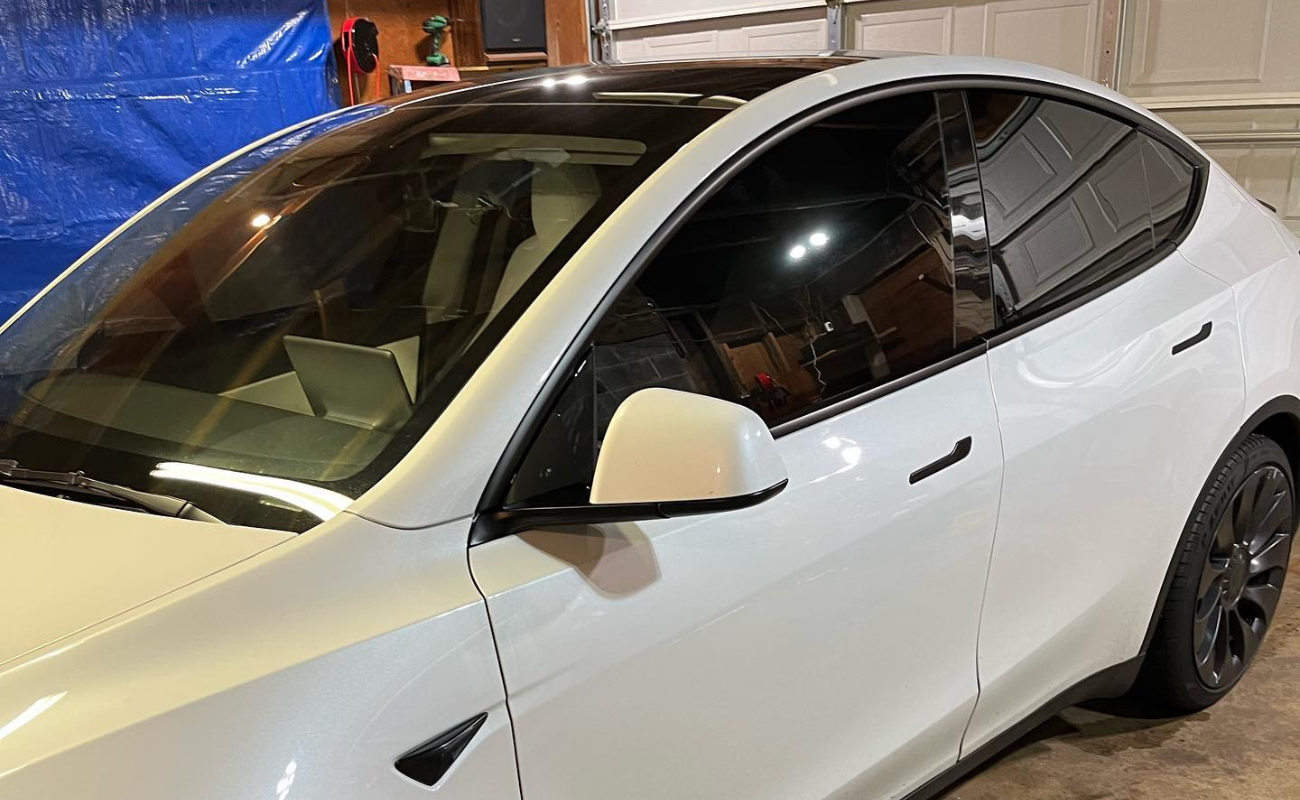
Heat Rejection Performance
When it comes to window tint, understanding heat rejection performance is crucial for maximizing comfort and energy efficiency in your vehicle or home.
The benefits of UV protection extend beyond just safeguarding your skin and interiors; they also contribute to reducing heat buildup inside your space.
UV Protection Benefits
With window tinting, you experience more than just a sleek appearance for your vehicle or home. UV protection is a crucial benefit that can enhance your comfort and well-being. Here are three reasons why UV protection matters:
- Preserve Your Skin: Window tinting blocks harmful UV rays that can cause skin damage and increase the risk of skin cancer. By reducing UV exposure, you can protect your skin’s health for the long term.
- Protect Your Interior: UV rays can cause fading and deterioration of upholstery, carpets, and furniture in your vehicle or home. Window tinting acts as a barrier, helping to maintain the appearance and longevity of your interior surfaces.
- Enhance Eye Comfort: Glare from the sun can strain your eyes and make driving or spending time indoors uncomfortable. UV-protective window tinting reduces glare, creating a more pleasant environment for you and your passengers.
Investing in window tinting for UV protection not only adds value to your property but also ensures a safer and more enjoyable experience within your vehicle or home.
Solar Heat Reduction
Window tinting not only provides UV protection but also offers significant benefits in solar heat reduction, also known as heat rejection performance. When considering solar heat reduction, it’s essential to look for window films with high Total Solar Energy Rejection (TSER) ratings.
TSER indicates the percentage of solar energy (heat) that the film can block. Films with higher TSER ratings are more effective at reducing heat penetration into your vehicle or home, keeping interiors cooler and more comfortable.
Opt for window tint products that have been specifically designed to minimize heat transfer while still allowing for maximum visibility. Ceramic window films are a popular choice for their exceptional heat rejection properties without interfering with electronic signals.
These films are often optically clear and provide superior heat reduction.
In regions with intense sunlight and high temperatures, selecting a window tint with superior solar heat reduction capabilities can significantly enhance your comfort level and reduce cooling costs. Prioritize heat rejection performance when choosing window tint to create a more pleasant environment while protecting your interiors from sun damage.
Privacy With Window Tint
For optimal privacy control, selecting the right type of window tint is crucial. When choosing window tint for privacy, consider the following:
- Reflective Tints: These tints are designed to reflect light and heat away from your windows, providing you with privacy during the day. The reflective properties of these tints make it difficult for outsiders to see inside your space while still allowing you to enjoy the view outside. They create a one-way mirror effect, giving you peace of mind knowing your privacy is protected.
- Opaque Tints: If you desire complete privacy both day and night, opaque tints are the way to go. These tints block visibility entirely, ensuring that no one can see inside your home or office. Opaque tints are perfect for spaces where privacy is of utmost importance, such as bedrooms and bathrooms. They create a barrier that keeps prying eyes at bay, allowing you to feel secure in your personal space.
- Frosted Tints: Frosted tints provide privacy without compromising natural light. These tints give your windows a frosted or etched glass appearance, obscuring the view from outside while still allowing light to filter through. Frosted tints are ideal for areas where you want privacy but still want to maintain a bright and airy atmosphere. They add a touch of elegance to your windows while ensuring your privacy is protected.
Considerations for Metallic Window Tint
When considering metallic window tint, you’re venturing into a realm that offers unique benefits and considerations compared to other types of window tint. Metallic window tint contains tiny metallic particles that reflect heat and UV rays, providing superior heat rejection compared to other tint options. This can help keep your car cooler in hot weather, reduce the strain on your air conditioning system, and protect your interior from sun damage.
One key consideration with metallic window tint is its potential interference with electronic devices. The metal particles in the tint can sometimes interfere with signals from GPS, cell phones, and radios. If you heavily rely on these devices while driving, you may want to consider this aspect before opting for metallic tint.
Additionally, metallic window tints can have a more reflective appearance compared to other tints. While this can enhance privacy by making it harder to see inside your vehicle, some regions have regulations regarding the level of reflectivity allowed on car windows, so it’s essential to check local laws before installing metallic tint.
In the vast world of window tint options, each type shines like a unique gem, offering distinct advantages to enhance your comfort and safety. Like a master craftsman selecting the perfect jewel for a crown, choosing the right window tint is a crucial decision that can elevate your driving or living experience. Consider your needs and preferences carefully, and let the radiant glow of UV protection, heat rejection, and privacy control guide you toward the perfect choice.
